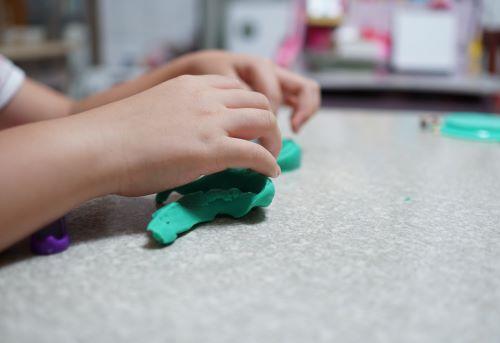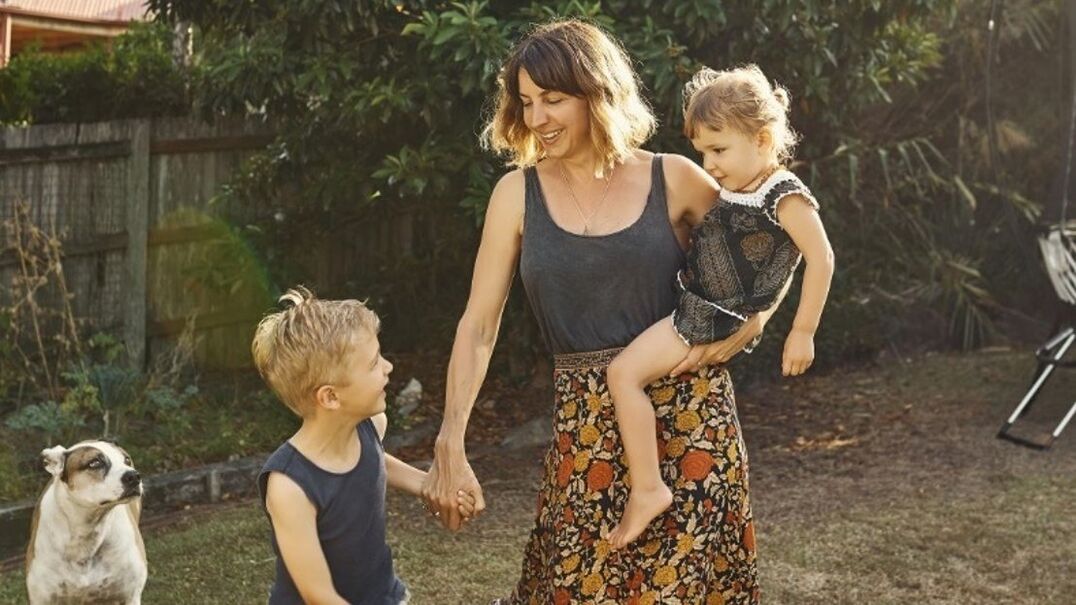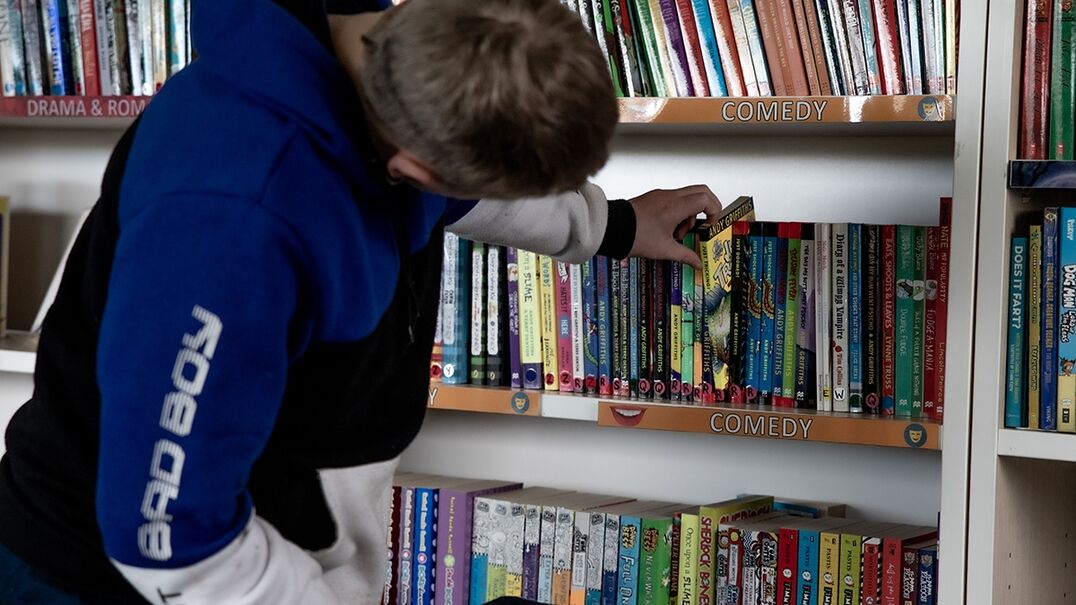Not much is known about Elle’s* first year. Her Mum has severe mental health problems and has lots of problems with drugs and drinking.
Elle was removed by Child Protection services from her mother around the time she turned one.
Her father immigrated from Asia. Growing up we suspect he experienced significant trauma during the long civil war in his country. Elle’s father didn’t know about Elle until after she was removed and placed into foster care. When he found out, she went to live with him together with his new partner Trisha.
For a couple of years Elle’s life was relatively stable. However, Elle’s Dad was often angry and violent. So eventually, Trisha left. Elle and her father moved in with some ‘aunties’ in a house in Melbourne’s south-eastern suburbs.
These aunties weren’t biological relatives, but other older women who had come from the same village as Elle’s father. Instead of providing love and safety, the aunties were punitive. Whenever she got upset, they punished her by smacking and kicking her and by locking her in a bedroom.
Elle’s Dad came and went a lot. Drinking, taking drugs and partying became his new norm. He was often going to nightclubs and gone for days. Soon he moved into a share house with other men he was partying with. The house was full of alcohol, loud music and fighting. Elle stayed with her aunties but her Dad would often take her to stay with him for a weekend.
Elle started at a local school. But the school quickly became really worried about Elle. She would sit in the sandpit and eat the sand. She would pee in the corner of the classroom on the carpet. After an incident and meltdown in the classroom, Elle reached into the Principal’s groin and tried to grab his genitals.
The school called Child Protection and Elle was removed again.
In temporary foster care, it turned out Elle’s behaviours were even more extreme than the school reported. She masturbated compulsively. She screamed, bit and threw things if anyone tried to stop her. She would try to take off other people’s clothes and often took all her own clothes off in public. She was aggressive and violent with other kids.
Child Protection workers struggled to find a foster carer without children living with them to take Elle. She was behaving so extremely – and they didn’t want other kids to be hurt by her – they resorted to putting Elle in a staffed residential care unit on her own. Her behaviours indicated she’d been abused – including probably sexually – and was severely developmentally delayed.
Trisha found out that Elle had been placed into care again and offered to take custody of her. She was living alone and was the closest thing Elle had ever had to a caring adult.
A couple of weeks later Trisha had started playing some music at home and Elle started to dance provocatively and take her clothes off. When Trisha asked about it Elle told her about some sexual abuse that had happened at her Dad’s house.
Trisha was distraught and Elle was referred to Berry Street’s Take Two service. She was allocated to Take Two clinician Zoe, who met her very soon after.
In her first session with Elle, Zoe says she saw a toddler in an 8-year-old’s body.
She was really developmentally delayed. She was having huge toddler-style tantrums, but because of her size she was hurting people and breaking things around her.
Trisha wasn’t coping. She’d started Elle at a new school, but she was peeing on the floor, screaming, biting and pushing over other kids. Trisha had got two dogs when she’d split from Elle’s father. Elle had begun hitting the dogs with a star picket from the backyard. Trisha knew she couldn’t keep the dogs and Elle at the same house, so she’d had to get rid of the dogs.
During our first session Elle ate the chalk we were using to draw pictures with. She wanted to play with the dolls and kept saying they were hurt and sick. She kept planting her face into the kinetic sand we were using and twice she peed on the floor.
Zoe undertook a rapid and intensive assessment of Elle, including using the Neurosequential Model of Therapeutics (NMT) assessment framework to understand Elle’s past experiences, her current level of functioning and understand her existing relationships (or lack thereof) with caring adults.
Based on the assessment, Zoe began several interventions simultaneously. She realised the key to helping Elle was to support Trisha.
Zoe started individual carer therapy sessions with Trisha at her home, to help her understand the complex trauma and pain that was driving Elle’s behaviour, and to help Trisha deal with her own trauma from her past family violence. They debriefed on incidents and discussed how Elle’s behaviours were impacting on Trisha’s mental health. Trisha learned techniques to keep herself calm when Elle was distressed.
Zoe arranged a specialist secondary consult with Take Two’s Occupational Therapist who identified Elle was a ‘sensory seeker’ – someone always looking for more ways to satisfy her senses. It was this sensory seeking (making up for the cuddles and physical contact she’d never had enough of) that was causing her to cling onto adults and to hurt other children and animals by trying to hold onto them too tight. Elle had not experienced and learnt to expect attuned soft touch or firm touch that didn’t turn into something quite punitive.
Take Two provided Trisha with suggestions to increase Elle’s sensory input at home and improve their relationship, including:
- bouncing, rolling and sitting on a big inflatable ball (helping her experience self-directed deep pressure and movement-based sensory input)
- being brushed or brushing herself with a therabrush (more self-directed deep pressure touch which is inherently regulating for most people)
- dancing and jumping around to music (learning to enjoy her body in healthy ways through music, movement and rhythm)
- doing activities with a theraband (deep pressure, and moves muscles slowly and with intensity which is naturally regulating for the lower parts of the brain)
- using a weighted blanket when she is sitting and sleeping (this works like an intense self-hug which helps her body feel contained and safe)
- having lots of hugs, piggybacks and hand massages on the couch with Trisha (learning about safe, predictable relational touch).
The local Centre Against Sexual Assault provided specialist advice to Zoe on helping Elle deal with the sexual abuse she’d suffered.
Zoe helped fast-track Elle into a Special Development School and arranged Trisha some regular respite care. Zoe then started leading trauma-informed reflective practice and psycho-education sessions for Elle’s care team which included several staff from her new school, Trisha and her DHHS case manager. They set about a systemic re-patterning of Elle’s days and relationships using Dr Kristie Brandt’s Mobius Care Tile and Grout approach.
The approach recognises that healing happens within safe relationships and there are potential healing moments in every hour of every day. Based on the findings of the NMT assessment they created activities and opportunities for Elle to spend time with caring adults throughout her day at school and at home. The approach created a predictable week for Elle and built a web of therapeutic relationships around her.
Elle’s classroom teacher, Wellbeing Coordinator, Year Level Coordinator and school-based Occupational Therapist all got involved. One of them meets her at the school gate every morning and walks her into the school together with Trisha. To reduce her distress when Trisha leaves, they now take her straight to the swing. The rhythmical movement calms her brain and helps reduce her anxiety. They then take her to the Breakfast Club where she eats with other students. In class she sits with a weighted toy in her lap and has scheduled regular short ‘brain breaks’ to do things like quick jumping and balancing games, shape playdough and doing short body percussion sessions.

Zoe also started play therapy sessions with Elle and Trisha to help them build their relationship. The sessions help Elle express her pain to Trisha in a safe and manageable way, as she pretends it is the doll or teddy that is scared or sad.
Over the space of just 6 months since being referred to Take Two, Elle has shown dramatic improvements. She’s reduced the number of meltdowns she’s having, and she’s much easier to calm down now when she does have one. She smiles and is very affectionate not only with Trisha, but with her teachers also. She is playing in a much safer and age-appropriate way, has mostly stopped removing her clothes in public and hasn’t peed in the classroom recently. She’s no longer deliberately hurting other kids, but sometimes she doesn’t realise how strong she is and accidentally hurts her friends when she hugs them or bumps into them.
The school and Trisha are now able to provide what Elle needs, so Zoe will soon be stopping her sessions with them.
Elle’s biological parents are not currently involved in her life, and Trisha is wanting Elle to live with her permanently.
Elle is a great example of how the NMT assessment can really steer the work I do. It’s not about me spending more time with Elle in individual therapy, it’s about the people who Elle spends all the other hours of her week with and helping them be able to understand and provide what she needs to recover. I’m hopeful for Elle and Trisha in the future.
Take Two is a Victoria-wide outreach service provided by Berry Street on behalf of the Victorian Department of Health and Human Services. The service is recognised all over the world as a leading model of how best to support children and young people who have experienced complex developmental trauma.
Take Two can provide specialist clinical consultancy services to other organisations. Contact us for more information.
*Note: Names and other identifying details of the children and their families in our case studies have been changed to protect them. Models appear in our photographs to protect the identity of our clients.



